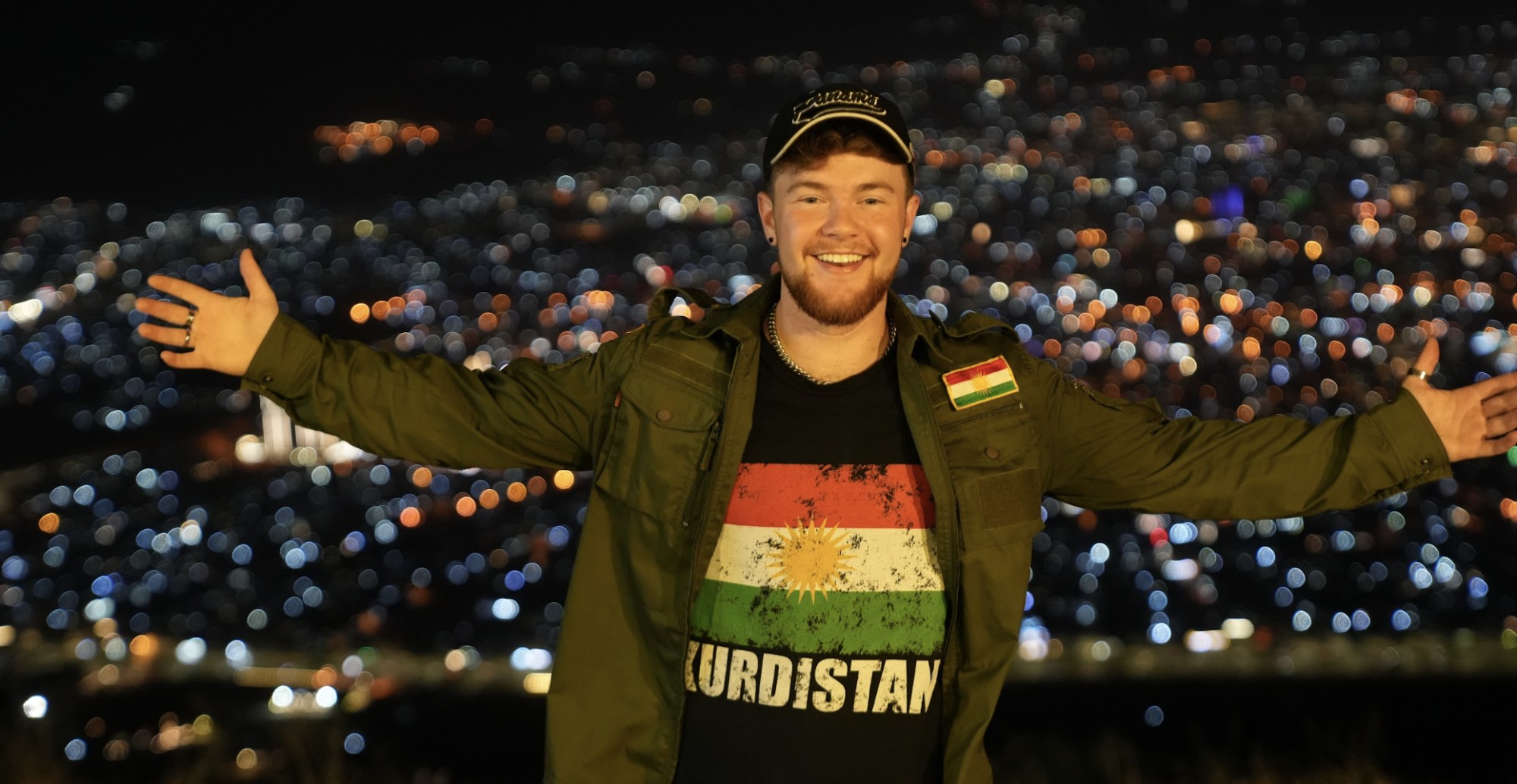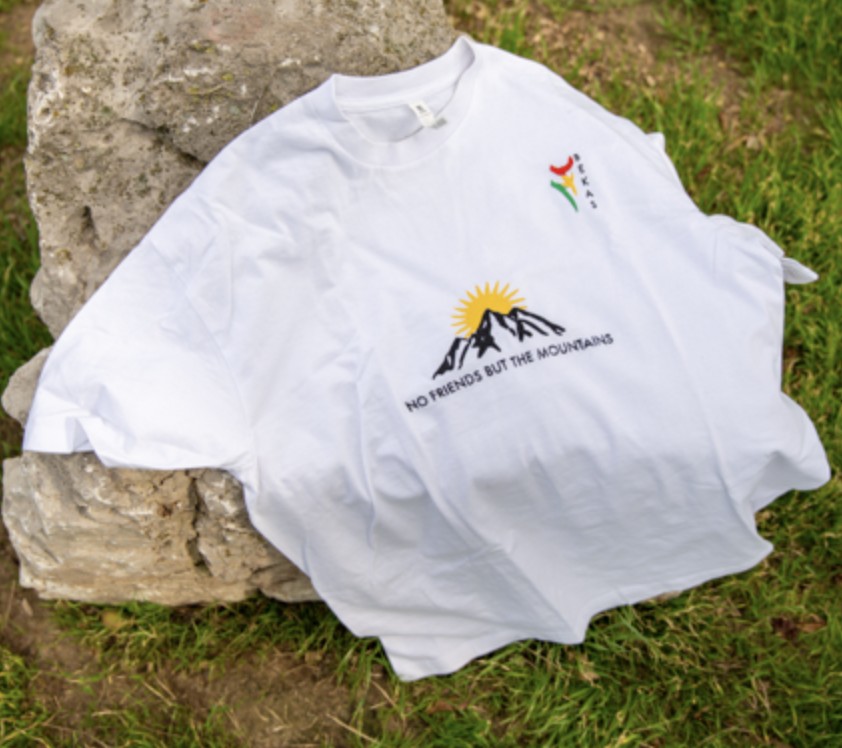An exhibition in Erbil organized by the Consulate of Italy in Erbil showcased11 Italian archaeological excavations in the Kurdistan Region, demonstrating the region’s potential for rich discoveries and highlighting sites that date back thousands of years.
Archaeologists working on these projects emphasize that the Kurdistan Region offers considerable opportunities for archaeological excavations, as much of the area remains unexplored.
“The Kurdistan Region has huge potential because it only opened to archaeology 10 years ago,” Paola Sconzo, Assistant Professor of Near Eastern and Phoenician Archaeology at the University of Palermo in Italy, told Kurdistan Chronicle.
“So, there are areas like the area north of Erbil immediately north of Duhok that have been explored only recently. What we have been doing in recent years is really pioneering work in areas that were unreachable by foreigners before. It’s a playground for us.”
Sconzo is part of the ReLand project, formed in January 2023 through collaboration between the University of Palermo and the General Directorate of Antiquities of Duhok, focusing on the on the impact of water level fluctuations on archeological sites in the Mosul Dam basin, which counts over 275 archaeological sites.
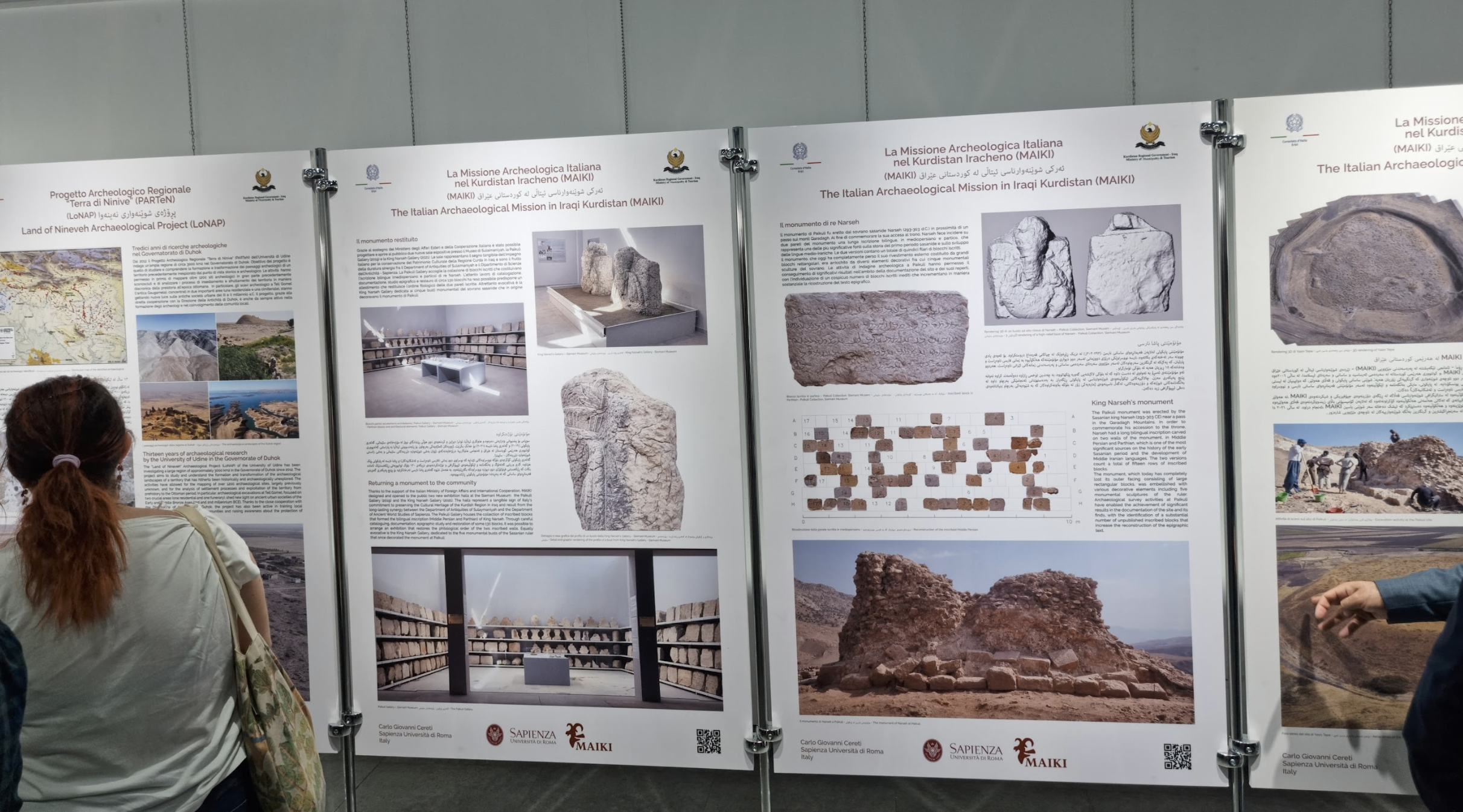
“We began just last year. It’s a new project. Within a year, Mosul Dam experienced a 40-meter fluctuation in water levels. This means sites are mostly submerged in January and fully submerged now, causing damage and erosion,” said Sconzo.
“We are working together with the Director General of Antiquities of Duhok to try to establish a protocol for monitoring, safeguarding, and recording all of the heritage that is being lost year by year.”
Sconzo noted that she has never felt unsafe in the Kurdistan Region, adding that it is a very nice place to work.
“I have been working in Kurdistan for 10 years. I was working with the German Mission before in this region and regularly participate in surveys. I have always felt safe. I trust the people who are guiding me, and the Director General of Antiquities is taking care of everyone.”
Luca Peyronel, Professor at the University of Milan in Italy, who is involved in an Italian archaeological expedition in the Erbil Plain, highlighted that most archeological projects started in the Kurdistan Region around 2010.
“The Kurdistan Region is almost unknown in terms of ancient history. We currently have many expeditions here, at least 11 Italian expeditions, but there are also expeditions headed by other countries. They cooperate with local archaeologists, especially on the Erbil Plain.”
In this capacity, Peyronel has participated in excavations at sites like Helawa and Aliawa, situated in the southwestern region of the Erbil Plain.
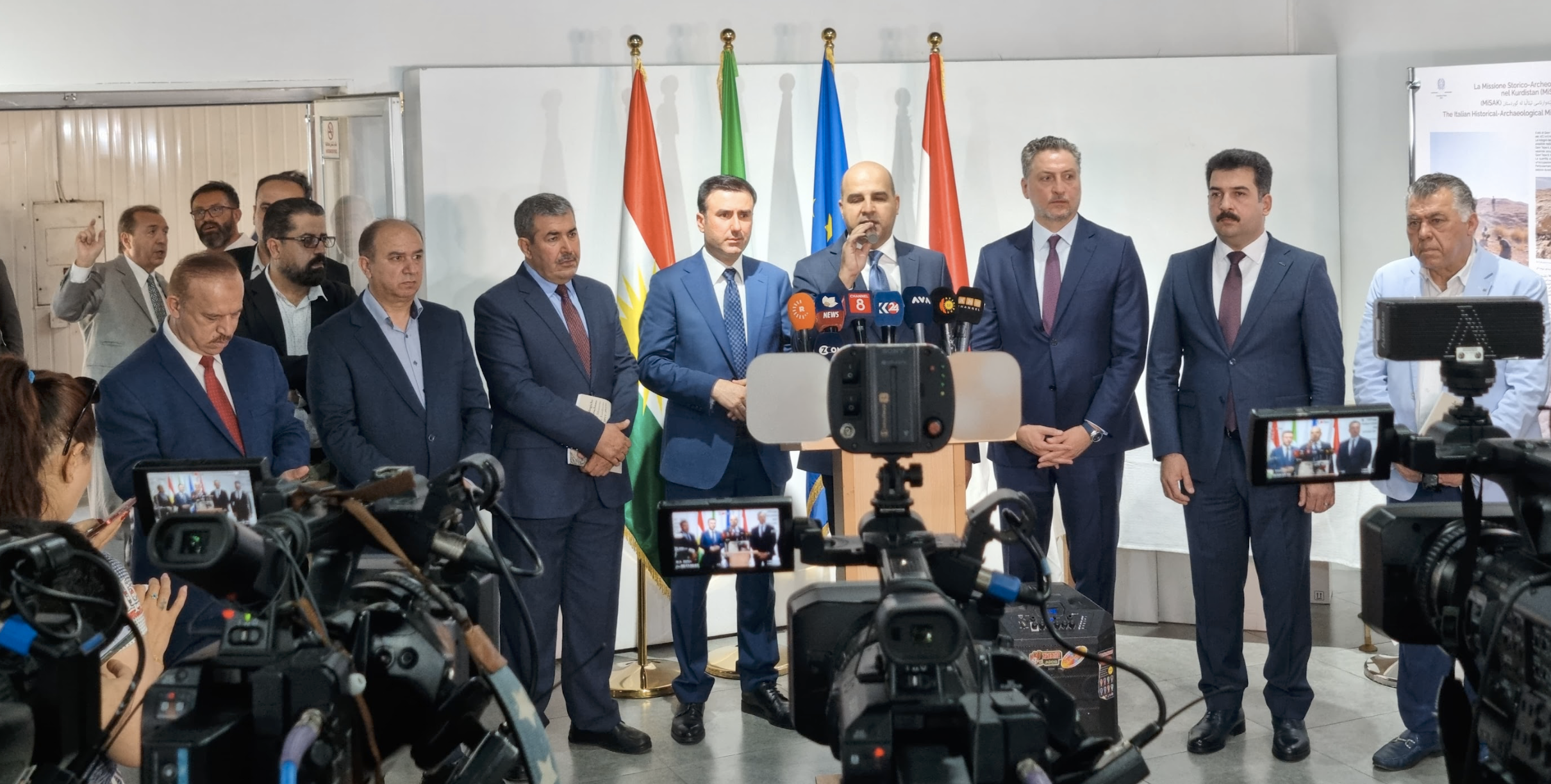
These excavations offer insights into complex relationships between human communities and the natural environment, from the emergence of the first settled villages in the Neolithic and Chalcolithic periods (5th and 4th millennia BC), then in the Bronze Age (3rd and 2nd millennia BC) as well as the era of the great empires in the 1st millennium BC, and beyond into the Islamic period.
“The plain is very important because of its crucial strategic position between the Tigris Valley and the Zagros Mountains. Important trade routes crossed in this region. We also discovered the region’s first Neolithic population here,” Peyronel added.
“The first signs of agriculture in the region date to the 6th and 5th millennia BC. That’s important to know when first surveying the region. Later we see traces of initial socio-economic complexity of the world’s first cities in northern Mesopotamia and how they developed into regional kingdoms during the Bronze Age.
Valentina Vezzoli, faculty member with a focus on Islamic archeology at the University of Udine, is studying the site of Bazhera near Akre. The site is part of a three-year project that features the remains of a structure used as a secure facility for merchants and travelers to rest and trade (caravanserai), the excavation of which will shed light on the settlement of this region during the Islamic period.
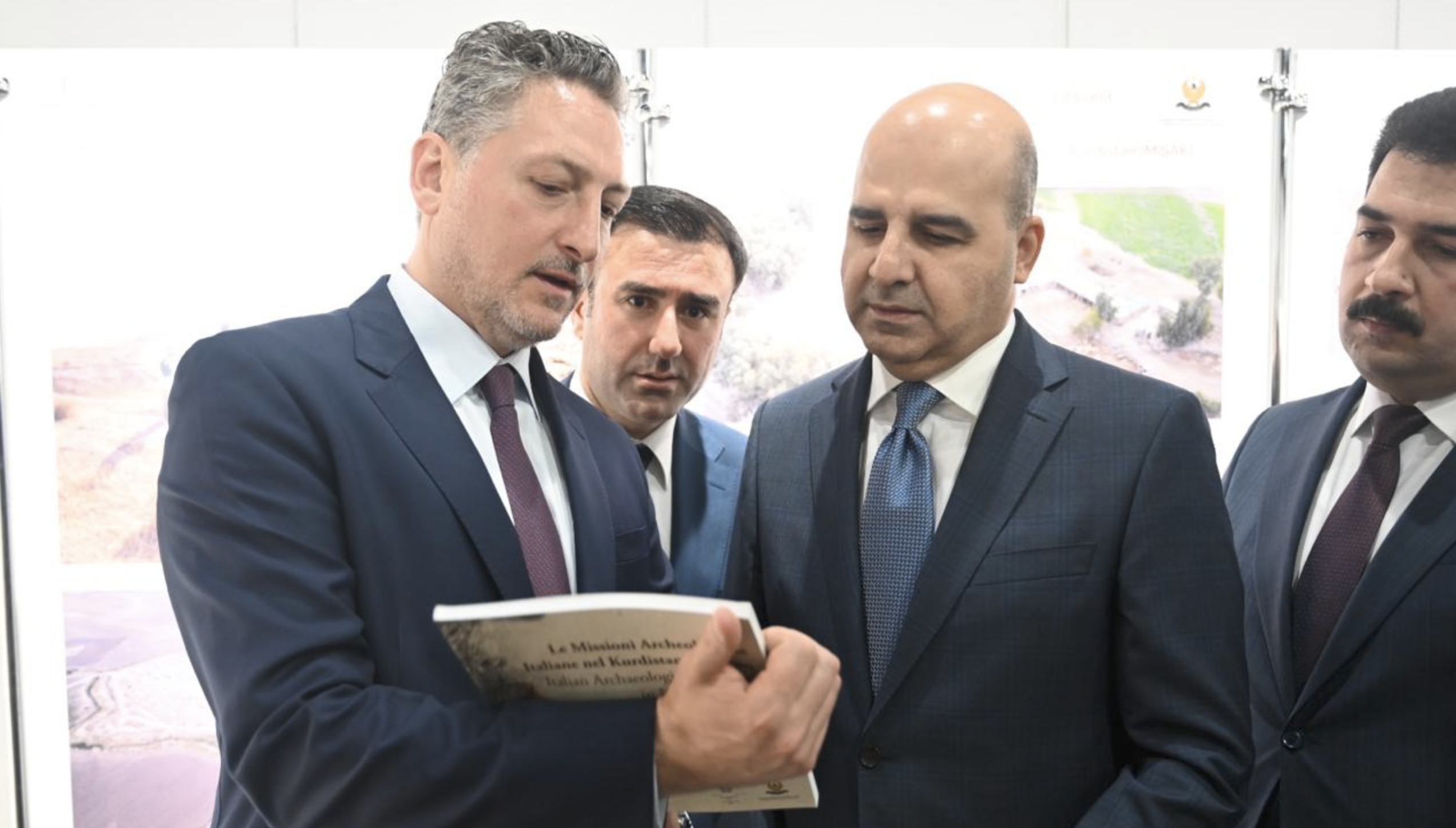
“Islamic archaeology is a field not yet well studied in the region, although it is really rich in that regard. International archaeological projects in the region show that there are many rural and urban sites with tremendous potential from the Islamic period. It’s very interesting.”
She added that the Consulate of Italy in Erbil and the Kurdistan Regional Government (KRG) General Directorate of Antiquities and Heritage were very supportive of these archaeological missions. “We are collaborating with them on various projects.”
Her team lives in Akre. “It’s a very nice city, with great food and very nice people. We really love the area,” she said.
Jesper Eidem, Associate Professor at the University of Pisa in Italy, works on the Tell Shemshara site in Ranya Plain near Lake Dokan, which is one of the most famous archaeological sites in the Kurdistan Region.
Danish and Iraqi excavations carried out in this area in the 1950s unearthed the remains of an ancient Babylonian palace, including important cuneiform tablets dating back 4,000 years.
Eidem said before 2003 that it was impossible to work in the Kurdistan Region due to a civil war that began in the 1990s. “However, in recent years, the KRG has been very active in promoting archeology.”
“We must continue our efforts to find more. It’s very important because the lake’s water level goes up and down every year and eats away at the site, so every year some of it is lost. It’s a race against time.”
Italian Consul in Erbil Michele Camerota told Kurdistan Chronicle that the Italian archaeological missions represent the “best example of cultural and scientific collaboration with the Kurdish Region and with the whole of Iraq, of which Italy holds the record.”
He noted that the Italian Agency for Development Cooperation has also provided a grant in Faida and Khinis in Duhok Governorate, “where the team from the University of Udine discovered some Assyrian rock reliefs of immense value along the irrigation system dated to the time of King Sennacherib.”
“In recent years, Kurdistan has emerged as a new frontier of the world archaeology itineraries, thanks to both the warm hospitality of the locals and for the general conditions in the field. We believe, in agreement with the Kurdish authorities, that preserving and enhancing the legacies of the different eras and civilizations has the ultimate purpose of affirming the value of culture as a driver for tourist attraction,” Camerota said.
“Moreover, the local population is already involved in various ways with the activities carried out by the archaeologists, which creates job opportunities for the community. Our final aim is to further promote local awareness to contribute to the enhancement of this priceless universal heritage.”
